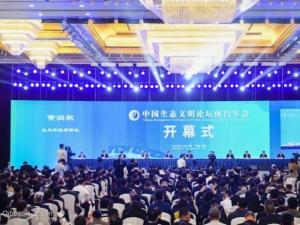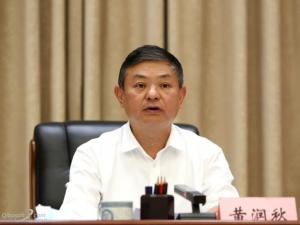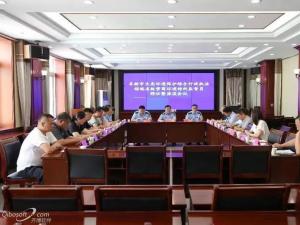AN eva lUATION OF THE CHINESE LEGAL SYSTEM(七)
|
viving system to meet the basic needs of human beings.”24 Next is the difference in what needs should be met. The basic law underlines material needs and cultural needs, while sustainable development emphasizes reasonable needs. Moreover, the difference lies in the way to achieve those needs. The basic law advocates promoting economic development through the growth of human desire and social requirements. In contrast, sustainable development stands for the function of limiting factors. Nowadays, this basic law is heavily criticized in Chinese academic circles, but it has not been thoroughly rejected officially. In recent years, China is transforming its economic development mode, and this might finally decide the destiny of the basic law. III. IMPROVEMENT AND OUTLOOK To improve the status quo of sustainable development, we should break the bottlenecks to improve the present system and in the meantime, to seize the opportunity to make innovations. The following two aspects should be prioritized. A. Valuing Legislation Legislation and parliamentary bodies tend to play an active role in sustainable development in recent years. “A strong integration of parliamentary bodies and MPs would offer new opportunities at several levels. Firstly, discussion in parliamentary bodies can improve the quality of the strategy. One also should not underestimate the public impact of a parliamentary debate over the sustainability strategy. Finally, discussion in parliamentary bodies through directly elected representatives of the people is a desirable approach from a democratic perspective.”25 24 Wenhu Ye, ed., 可持续发展的新进展 (New Progress in Sustainable Development), Science Press, at 117 (2008). 25 Sustainability Strategies in the European Union and Options for Underpinning them in the National Parliaments. An Expert Study by Forum Sustainable Austria commissioned by the Federal Ministry of Agriculture, Forestry, Environment and Water Management (p. 40). 120 FRONTIERS OF LAW IN CHINA [Vol. 8: 103 On 10 March 2011, Wu Bangguo, Chairman of the Standing Committee of the National People’s Congress stated at the 4th session of the 11th National People’s Congress, the goal of forming a legal system of socialism with Chinese characteristics has been successfully fulfilled. He laid stress on the point that “solved the fundamental, overall, stable and long-lasting problems by system and law”26 when talking about the function of this system. These issues have been China’s official orientation (national policy and economic development strategies) to sustainable development for a long time. In recent years, the law-making bodies in China have attached increasing attention to environment issues including sustainable development issues. For instance, the Resolutions of the Standing Committee of the National People’s Congress on Actively Addressing Climate Change of 2009 push forward the legislation process of ministries and local governments. China lays emphasis on keeping pace and coordinating with UN and international communities. The experiences brought from European Parliament on sustainable development will be an important lesson for China’s law-making bodies, especially on the aspects of improvement of legislation, supervision on government, encouraging public participation and empowering the public with legal rights. Post eva luation will be a new mission for China after the establishment of the legal system. Post eva luation refers to the eva luation on the implementation of a certain law or regulation including achievements and problems that exist after a certain period of enforcement. The objective is to better execute existing laws, improve eva luated laws and regulations and provide guidance for relevant legislations. After the formation of the socialist legal system with distinct Chinese characteristics, China will enter into the post-lawmaking period. It is a turning point. The gap of legislation is already filled. The focus can be switched from speeding up legislation to solving problems of the legislation, and to constructing a modern legal system. In short, China is now paying attention to making laws scientifically to precision, and to embody democracy and people’s well-being in legislations.27 On 27 June 2010, the Standing Committee of the National People’s Congress 26 http://www.news.china.com.cn (last visited Oct. 3, 2011). 27 Ronggen Yu, 法律体系形成后的立法评估 (eva luation on Legislation after the Formation of Legal System), 法制日报 (Legal Daily), Mar. 21, 2011. 2013] CHINESE LEGAL SYSTEM ON SUSTAINABLE DEVELOPMENT 121 reviewed the report of the trial implementation submitted by the Legislative Affairs Committee at the 21st session. It is necessary to conduct legal eva luation on sustainable development for two main reasons. First, sustainable development itself is a mechanism that needs continuous exploration and improvement. Second, it should undergo an assessment process when the universally accepted concept is put into effect with actual situations. The post eva luation has just started in China. The first example of post eva luation is the Measures of the Ministry of Land and Resource Regarding Post eva luation of Regulatory and Normative Documents, which was enacted on 7 September 2010. This demonstrates the government’s special attention to the post eva luation of the legislation on environment and natural resources. The essential point is to develop a scientific eva luation method and standard and define the elements and principles of eva luation. China may refer to the lessons of the United Nations and European countries. B. Green Economy Infuses New Vigor to Sustainable Development The concept of “green economy” was first put forward in Pearce’s “Blue Print for a Green Economy” published in 1989. The United Nations Environment Program’s proposal enabled the loosely defined theory to become influential globally. The United Nations Environment Program (UNEP) released the two reports of “Green Economy” and “Green New Deal” in October and December 2008 respectively. The primary objective was to promote economic recovery, create jobs, reduce carbon emissions, repair degraded ecosystems and tackle water shortages through innovation in the “green economy” and “green new deal.” Moreover, the UNEP aims to achieve the Millennium Development Goals ― which call for the alleviation of extreme poverty in the world by the end of 2025 ― despite the challenges created by the global economic crisis.28 The core idea of the initiative demonstrates that the greening of economy will not be a burden. It serves as an engine of growth instead. The report of Gree |
我来说两句
已有0评论 点击全部查看






